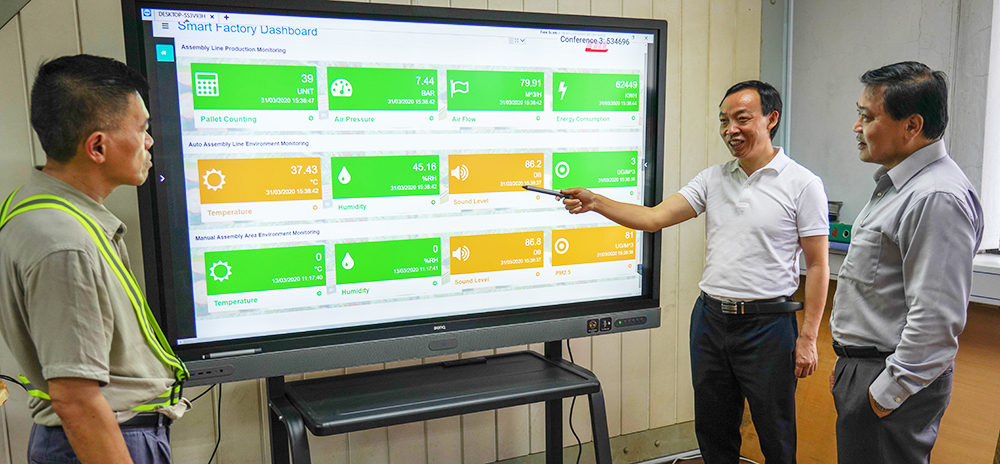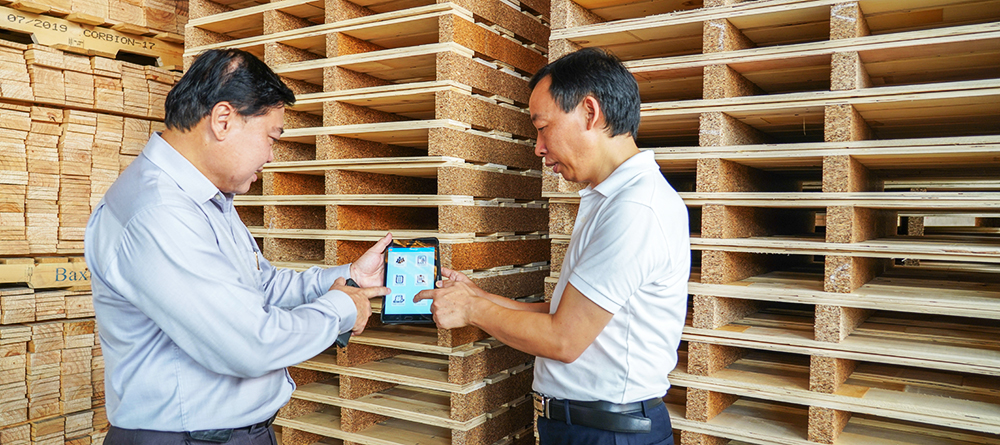
- Press Releases
- Industry Updates
- SIMTech Manufacturing Matters
- Manufacturing Matters
- SIMTech 30th Anniversary
- Events
- ASPEN2022
- BCA Green Mark (Platinum) for Healthier Workplaces and Laboratories
Making Business Sense of Sustainability
SIMTech uses technology to help businesses achieve balance between profitability and sustainability

Driven by a vision of building a sustainable future where businesses make profits while making a positive impact on people and the planet, the Sustainability & Life Cycle Management Group’s (SLMG) R&D focuses on two key areas.
Firstly, the Eco-Operations and Design looks at how waste as well as materials and energy consumption can be minimised to improve resource efficiency across a business operation. Secondly, the Industrial Ecology examines how flows of resources can be facilitated within and across industries to enable circularity of resources.
Collaborating with researchers across A*STAR, from the universities, and the industry, R&D outcomes are translated into capabilities and tools in the domain applications of Life Cycle Analysis, Energy Management, Water Management and Waste-to-Resource Management. These tools enable companies to improve their resource efficiency and support them in the transition towards a low-carbon and circular economy.

Energy Cost Reduced
One of the companies that benefited from these efforts is LHT Holdings Limited. LHT is a local company that manufactures and supplies wooden pallets to its customers for the packing of industrial products. Since 2008, SIMTech has been supporting LHT to improve its processes and upgrade its capabilities.
Among these collaborations is the re-engineering of its existing pallet assembly line by feeding raw materials automatically and connecting sensors to create an Internet of Things-enabled environment to obtain real-time data. The smart pallet assembly line enhanced the company’s productivity and relieved its employees from intensive labour work during the manufacturing process.
Over the past three years, LHT has been able to tap on SLMG’s manufacturing and sustainability expertise to introduce other energy, resource and cost efficient methods to complement their daily operations.
For instance, the Energy Efficiency Monitoring and Analysis System (E2MAS) was deployed by LHT to assess its equipment’s energy efficiency in real-time and identify hotspots of excessive energy usage. Through the power meters installed at the pallet assembly and polishing machines, the system analyses energy data for the hotspots and derives potentials for energy efficiency improvement. This enables LHT to understand day-to-day energy usage in its manufacturing line, and adopt best practices in energy management.
LHT also makes use of a compressed air system management toolkit with energy conservation practices to reduce compressed air leaks by 20-30 per cent. With the implementation of these efficiency measures, LHT has successfully increased their daily pallet output and quality to boost productivity with profitability, and at the same time, reduced their consumption of energy by 20-30 per cent and increased raw materials turnover by 15 per cent.
SIMTech provided us with sustainable solutions that makes LHT more efficient and effective in overcoming current uncertainty, and makes our factory not only better to work in, but also environmentally friendly to mitigate climate change with reduced carbon footprint
Ms May Yap, Managing Director, LHT Holdings Ltd
Reducing Singapore’s environmental impact of food consumed
Global food production contributes to about 19-29 per cent of the total greenhouse gas (GHC) emissions. To assess the environmental impact of local food consumption, SIMTech and Deloitte Singapore were commissioned by Temasek International to initiate a Singapore-specific study .
Using the Life Cycle Assessment approach, SLMG quantified GHG emissions, energy and water consumption of various food items in Singapore. The study presented existing challenges on how Singapore’s food consumption contributed to these environmental impacts and provided answers to how food contributes to climate change.
With this, SIMTech presented opportunities as to how sourcing fresh food from nearer countries, where air transportation is reduced, and from countries with cleaner electricity generation can potentially reduce the environmental impact of food in Singapore. Findings also show how shifting to a lower meat consumption diet helps in reducing greenhouse gas
emissions.
Different future scenario analyses highlight how the opportunities recommended may scale down the environmental impact in Singapore by 2030. These insights will help inform policy makers and businesses in the F&B space on less environmentally burdensome strategies. The results from the study were shared at the Ecosperity Conference organised by Temasek International in 2019.
Source:
https://www.ecosperity.sg/en/ideas/environmental-impact-of-food-in-singapore.html
For enquiries, please contact
Dr Ng Sum Huan Gary, Acting Deputy Director, SMC
Email: shng@SIMTech.a-star.edu.sg
Web: www.a-star.edu.sg/SIMTech-SMC

A*STAR celebrates International Women's Day

From groundbreaking discoveries to cutting-edge research, our researchers are empowering the next generation of female science, technology, engineering and mathematics (STEM) leaders.
Get inspired by our #WomeninSTEM
.png?sfvrsn=843a4005_8)